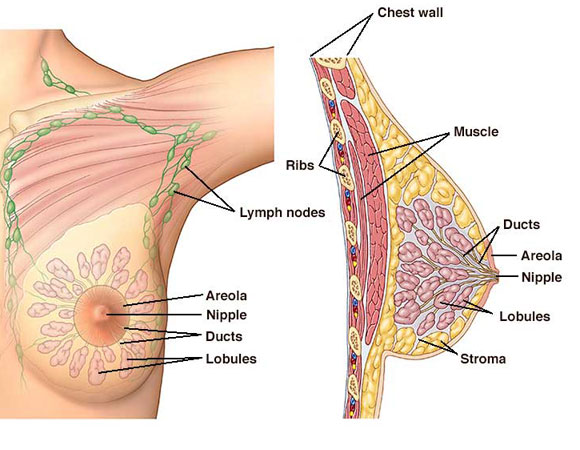Breast Specialty

In this day and age, with rising cases of cancers, especially breast cancer, women need to be more cautious and aware of the breast and its associated issues. The breast or the mammary gland is an apocrine gland whose primary functionality in females is for feeding an infant. Breast is composed of adipose, glandular and connective tissues. Because these tissues have hormone receptors, their sizes and volumes fluctuate according to the hormonal changes particular to menstruation, pregnancy, lactation and menopause. Any anomaly observed in these regular changes, is a point of speculation.
Women must be aware of symptoms of abnormality to identify breast conditions well within time to avoid unexpected circumstances. Breasts can have irregularities like lumps, pain, nipple discharge, irregular shape, asymmetry, sagging, redness, etc. Some of these symptoms can be benign or other minor conditions like fibroadenoma which is treatable and not risky. However it best to reassure. Most of the times your general physician or gynaecologist can help you identify the issue. But in many cases, where the symptoms are not clear, a breast specialist can be of aid in diagnosing the breast condition exactly.
Although a breast specialty is not board-certified specialty, yet they are certified doctors who focus specifically on breast health including breast pain and soreness, to mastitis (breast infection), to unexplained nipple discharge.
A Breast Specialist
- Analyzes your breast condition and medical history
- Examines breast, identifies symptoms and diagnoses the exact problem
- Recommends required tests, mammography, biopsy
- Recommends lifestyle and diet changes , exercises to improve breast health







